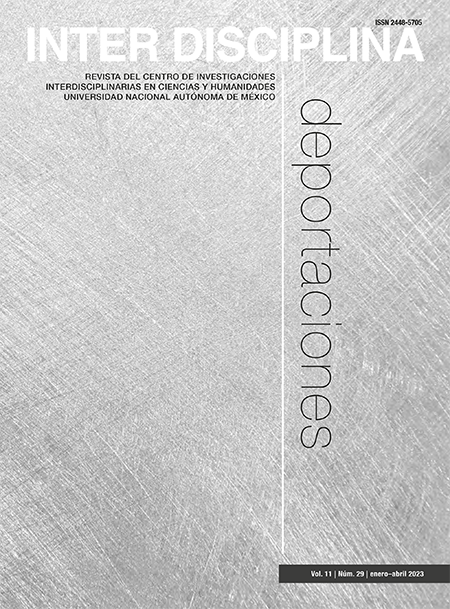Presentation
Contenido principal del artículo
Resumen
Our civilization has been influenced throughout its history by various globalization processes. The first of these took place between the 15th and 19th centuries, marked by the development of the great navigation voyages and the expansion of mercantilism. The latest version of these phenomena began after the fall of the Berlin Wall in 1989. The so-called New World Order was characterized by a further advance and consolidation of the capitalist system. The collapse of tariff barriers and trade restrictions became clear, taking the concept of free markets to a new level.
However, these market liberalizations apparently naively neglected the sector of the world economy that is the only true generator of value: the labor market. Commercial exchange between the United Kingdom and India was possible, but the free flow of Indian and British workers was impossible, who in their legitimate interest of maximizing their personal profits (as postulated by the current neoclassical economic theory) decided to place their work in the place where their benefits will be optimized.
This asymmetry amplified the age-old difference between rich and poor countries: while the free market in goods ruined national industries poorly prepared to compete, the impossibility of making adjustments in the labor market put national economies on the road to further impoverishment, a very fertile crucible for the development of transnational crime, one of the most successful industries of the current wave of globalization.
In a collateral way, capitalism, in its eagerness to maximize profits, took advantage of the opportunity offered by cheap labor, also captive by migratory restrictions, to establish in poor countries a system of maquila industries that lowered the costs of products that later moved freely around the planet thanks to the free market and the unusual development of means of transport.
This development of the means of transport has been the support of the remarkable migratory flows that the first three decades of this millennium have witnessed. The Mediterranean has become the scene of a battle between emigrants from African countries and the authorities of the rich European powers. The Caribbean Sea has witnessed the flow of fragile rafts where inhabitants of the islands of the region go to the US in search of the “American dream”. All of Central America and the Mexican territory have become the route where Latin Americans of very different origins try their luck to cross the US border and leave behind the misery that harasses them in their countries.
The 3,169 km of border between the US and Mexico pose an insoluble challenge in practice for US authorities. The construction of walls on a border where tunnels abound has not been able to stop the migratory flow. This is why deportation policies constitute the sine qua non tool to deal with the arrival of migrants that create imbalances in the labor markets of the northern neighbor with the expected consequences in terms of citizen approval for the authorities and political figures.
This issue of INTER DISCIPLINA journal dedicated to deportations draws a broad panorama of these processes, whose magnitude has increased in the last two decades. An understanding of the multiple facets of this interdisciplinary phenomenon can only be achieved through approaches of different epistemic origin. In this way, the 8 research articles that make up the dossier of this number contain works that study and analyze the deportation processes between the United States and Mexico from approaches that favor migratory, political, social, psychological, journalistic, legal and of human rights. This issue also includes an interview with migrant Ana
Laura López, where she shares her experiences as a migrant as well as the lack of support she received from the authorities upon her return to Mexico once she was deported. This edition of the journal also contains 9 works in the Independent Communications section that are well summarized in the editorial by the guest editor. It also includes two reviews of books related to the topic of migration.
This issue of Deportaciones invites the reader to reflect on return migration from the United States to Mexico, but also establishes a starting point for the study of deportation processes in other parts around the world.
Descargas
Detalles del artículo
Citas en Dimensions Service

Esta obra está bajo una Licencia Creative Commons Atribución-NoComercial-SinDerivar 4.0 Internacional.

